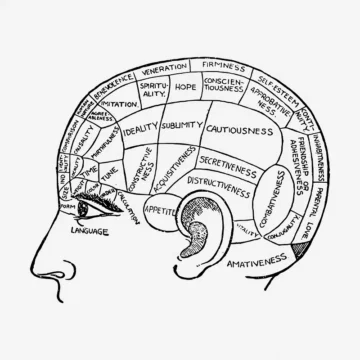Aaron Neiman at Aeon Magazine:
 Foucault was greatly disturbed by modern psychiatry’s ability to draw definitive lines between the ‘reasonable’ and the ‘unreasonable’. He came to see it as another way for society to punish and marginalise its most troublesome subjects. Deploying the metaphor of a circulatory system, he conceived of psychiatrists as figures of ‘capillary’ power – unlike the conspicuous, beating heart of the state, these authorities functioned as more subtle, distal agents of the status quo. Writing in the 1960s and ’70s, Foucault saw the psychoanalytic therapists of his day as the latest technicians managing ‘one of the West’s most highly valued techniques for producing truth of one kind or another’ – the confession. This is the idea that disclosing one’s inner darkness leads to salvation, truth, self-actualisation. There is an important similarity between how this dynamic plays out in the church and the clinic: ‘bravely confront and share the ugly things inside you’ equally describes the task of the confessional booth as it does the therapist’s couch. In both cases, there is more at play here than simple unburdening: it is not just that ‘shared sorrow is half sorrow’, as in the case of confiding in a friend, but also that having an adversarial encounter with yourself can be fruitful in some way.
Foucault was greatly disturbed by modern psychiatry’s ability to draw definitive lines between the ‘reasonable’ and the ‘unreasonable’. He came to see it as another way for society to punish and marginalise its most troublesome subjects. Deploying the metaphor of a circulatory system, he conceived of psychiatrists as figures of ‘capillary’ power – unlike the conspicuous, beating heart of the state, these authorities functioned as more subtle, distal agents of the status quo. Writing in the 1960s and ’70s, Foucault saw the psychoanalytic therapists of his day as the latest technicians managing ‘one of the West’s most highly valued techniques for producing truth of one kind or another’ – the confession. This is the idea that disclosing one’s inner darkness leads to salvation, truth, self-actualisation. There is an important similarity between how this dynamic plays out in the church and the clinic: ‘bravely confront and share the ugly things inside you’ equally describes the task of the confessional booth as it does the therapist’s couch. In both cases, there is more at play here than simple unburdening: it is not just that ‘shared sorrow is half sorrow’, as in the case of confiding in a friend, but also that having an adversarial encounter with yourself can be fruitful in some way.
This uneasy brush with the self, mediated through a person with social authority, is an essential feature of these confessional practices, and distinguishes them from other kinds of dialogue. Therapy is based on this same model: it is carefully choreographed around a highly skilled worker, one with the practical knowledge and symbolic authority to endow this interaction with the gravity it deserves.
more here.
Enjoying the content on 3QD? Help keep us going by donating now.
